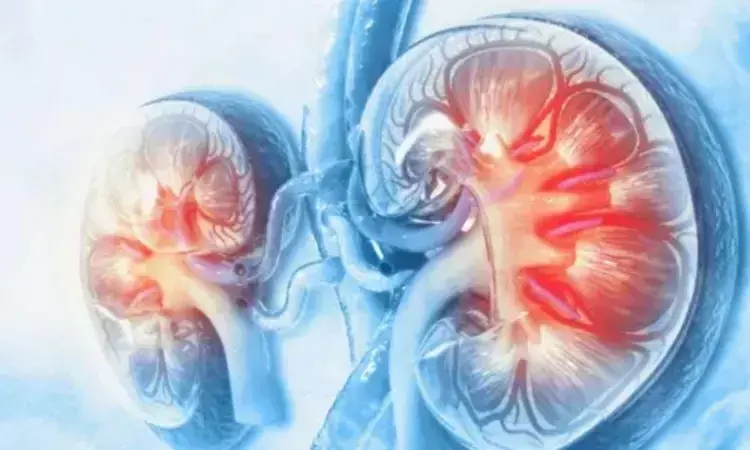- Home
- Medical news & Guidelines
- Anesthesiology
- Cardiology and CTVS
- Critical Care
- Dentistry
- Dermatology
- Diabetes and Endocrinology
- ENT
- Gastroenterology
- Medicine
- Nephrology
- Neurology
- Obstretics-Gynaecology
- Oncology
- Ophthalmology
- Orthopaedics
- Pediatrics-Neonatology
- Psychiatry
- Pulmonology
- Radiology
- Surgery
- Urology
- Laboratory Medicine
- Diet
- Nursing
- Paramedical
- Physiotherapy
- Health news
- Fact Check
- Bone Health Fact Check
- Brain Health Fact Check
- Cancer Related Fact Check
- Child Care Fact Check
- Dental and oral health fact check
- Diabetes and metabolic health fact check
- Diet and Nutrition Fact Check
- Eye and ENT Care Fact Check
- Fitness fact check
- Gut health fact check
- Heart health fact check
- Kidney health fact check
- Medical education fact check
- Men's health fact check
- Respiratory fact check
- Skin and hair care fact check
- Vaccine and Immunization fact check
- Women's health fact check
- AYUSH
- State News
- Andaman and Nicobar Islands
- Andhra Pradesh
- Arunachal Pradesh
- Assam
- Bihar
- Chandigarh
- Chattisgarh
- Dadra and Nagar Haveli
- Daman and Diu
- Delhi
- Goa
- Gujarat
- Haryana
- Himachal Pradesh
- Jammu & Kashmir
- Jharkhand
- Karnataka
- Kerala
- Ladakh
- Lakshadweep
- Madhya Pradesh
- Maharashtra
- Manipur
- Meghalaya
- Mizoram
- Nagaland
- Odisha
- Puducherry
- Punjab
- Rajasthan
- Sikkim
- Tamil Nadu
- Telangana
- Tripura
- Uttar Pradesh
- Uttrakhand
- West Bengal
- Medical Education
- Industry
Patients with moderate to severe AKI usually have low follow-up kidney testing after hospital discharge

A study of Canadian hospitalizations from 2007-2019 show that over 75% of patients with moderate to severe acute kidney injury (AKI) do not get appropriate follow-up kidney health testing after hospital discharge.
A study in Alberta, Canada, examined care received by over 20,000 hospitalized with AKI during hospitalization and after discharge between 2009 and 2017. The results, recently published in the American Journal of Kidney Diseases (AJKD), showed that a low proportion of patients with moderate to severe AKI were seen by a kidney specialist during hospitalization or within 90 days after discharge. Less than 25% of AKI patients had their kidney function monitored with both blood and urine tests within 90 days of discharge. Additionally, about half of AKI survivors with chronic kidney disease (CKD) were prescribed guideline recommended medications for CKD, within 15 months after discharge.
There is potential to improve health care delivery to these patients both in hospital and after hospital discharge.
Reference:
Sandeep Brar, Feng Ye, Matthew T. James, Tyrone G. Harrison, Neesh Pannu, Processes of Care After Hospital Discharge for Survivors of Acute Kidney Injury: A Population-Based Cohort Study, https://doi.org/10.1053/j.ajkd.2023.07.015.
Dr Kamal Kant Kohli-MBBS, DTCD- a chest specialist with more than 30 years of practice and a flair for writing clinical articles, Dr Kamal Kant Kohli joined Medical Dialogues as a Chief Editor of Medical News. Besides writing articles, as an editor, he proofreads and verifies all the medical content published on Medical Dialogues including those coming from journals, studies,medical conferences,guidelines etc. Email: drkohli@medicaldialogues.in. Contact no. 011-43720751


